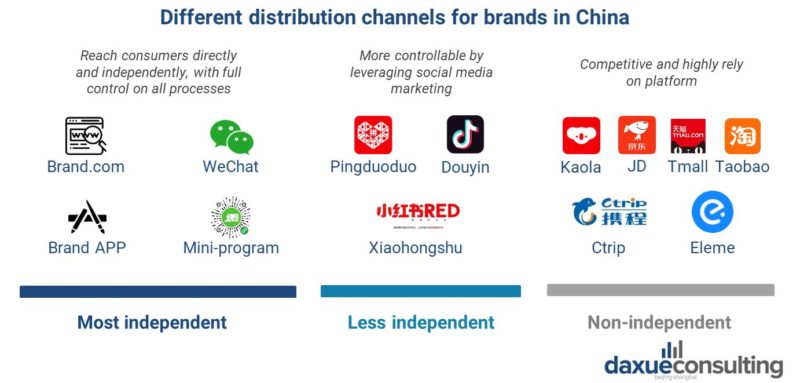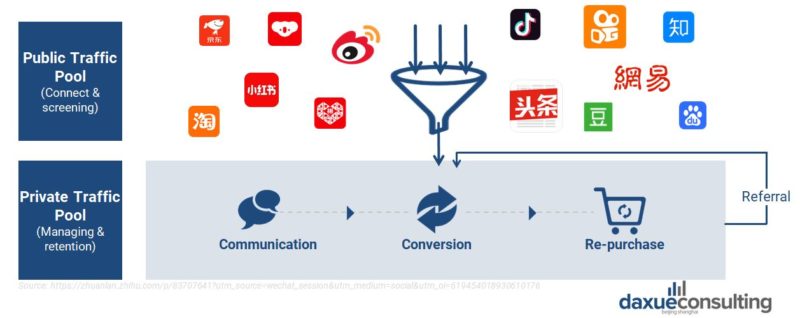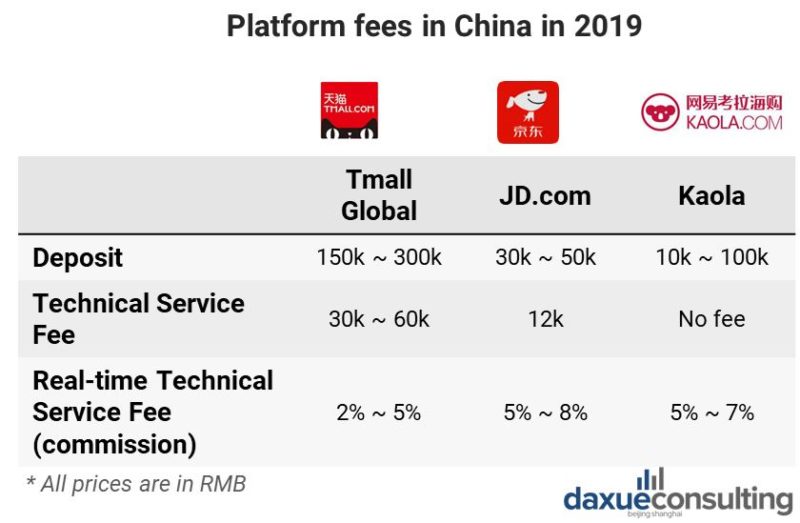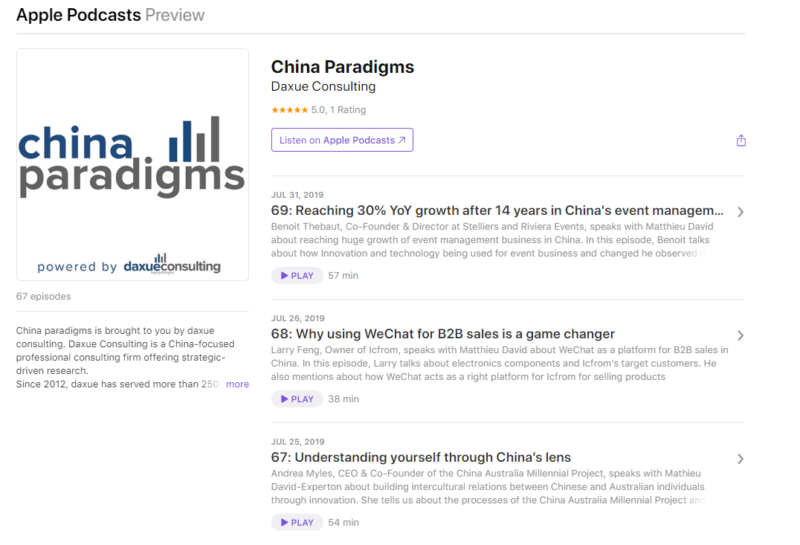What is Brand Independence?
Brand independence refers to a brand not relying on any other third party channels such as online marketplaces to sell products. In this case, the traffic will be driven from independent sales channels such as the brand’s own website. Brands, in turn, can manage their own identity, assets, and digital assets to drive traffic, covert purchase, retain customers and build their own community. In this article we learn about the advantages of brand independence in China.
Download the brand independence in China report

Why is Brand Independence important in China?
E-commerce and Brand Independence
China is the largest e-retail market in the world with over 610 million digital consumers. However due to the dominance of e-marketplaces in China, it is all too easy to overlook the advantages of independence from marketplaces. Now is the time to reconsider our options and evaluate whether brand independence is the right choice for your brand in China.
At this phase in E-commerce evolution, many global retailers and brands are leaving the marketplace platforms as they are becoming increasingly precarious. Brands are seeking independence once again so they can exert full control and retain full ownership over their e-commerce traffic and consumer data.
Online marketplaces vs Brand.com
Although online marketplaces are easy to set-up and are interlinked with Chinese consumers’ daily life, many potential problems need to be considered. Large marketplaces have tense competition between brands and leave little room for bands to differentiate from one another. This makes it harder for retailers to effectively deliver their unique proposition to target consumers. Most of all, brands cannot make much money on marketplace platforms as administration fee, advertising fee and price wars all cut profits.
On the other hand, brand.com may provide solutions to problems created by online marketplace platforms. The brand, having full control over branding and how their products are displayed online, can decide on how to differentiate itself among competitors. With control over their website, brands can also decide how to deliver their unique proposition to target customers.

E-commerce marketplaces control how much or how little consumer data is shared with brands. When brands sell through self-owned platforms like their own website, they can own and analyze their own consumer data, giving them an advantage in understanding consumer habits.
As many cross-border marketplaces in China are often criticized for offering fake goods. Selling on self-owned platforms eliminates the risk of brand products being perceived as counterfeits. Hence, consumers trust that the brand owned channel is authentic goods.
Brand independence in China is indeed becoming increasingly important for those who wish to master a better business.
Key advantages of brand independence in China
Private traffic
Private traffic in China is a growing phenomena. While online marketplaces generate high traffic, there is no guarantee that the traffic will flow to your brand. Additionally, when traffic does go to your brand’s products, your brand sees only the limited data that the platform is willing to share. However, with self-owned E-commerce platforms, brands do not have to share traffic with competitors in the marketplace. This will allow brands the advantage to create a tailored experience to target existing or potential clients as they are all private traffic that have shown direct interest to a particular brand. Brand website or brand App is where the experience and customer interaction will begin, and in turn, the interactions will likely transfer into future conversions.

[Public traffic from APPs can become private traffic where brands communicate with consumers in chat groups]
Stronger brand image
Brands can more effectively manage their brand image, brand equity, brand value etc., with a brand independence strategy. A successful brand independence strategy in China will allow a brand to create a strong linkage with customers, in which they will prefer to shop from the brand’s platform directly over visiting different online marketplace platforms. Moreover, brands can manage their own community with brand independence. Once community members connect to your brand, it increases customer loyalty and retention, creating a higher barrier to switch brands. Brands will find it easier to deliver a unique value proposition as all features and modules of its self-owned platforms can be directly controlled and modified according to target consumers’ needs.
Cost effective
Brand independence could be potentially more cost-effective than online marketplace platforms. Brands must give around 2%-10% of their sales commission to leading public marketplace platforms, not to mention other types of platform fees and higher commissions required for flash sales. In this case, all sales revenue gained from self-owned E-commerce platforms will flow directly to the brand itself.
Online marketplace platforms offer convenience, while self-owned E-commerce platforms offer control. However, control will eventually become more critical as your E-commerce business continues to grow.

[The costs of selling on the top Chinese e-commerce marketplaces in 2019]
Let China Paradigm have a positive impact on your business!
Listen to China Paradigm on iTunes





